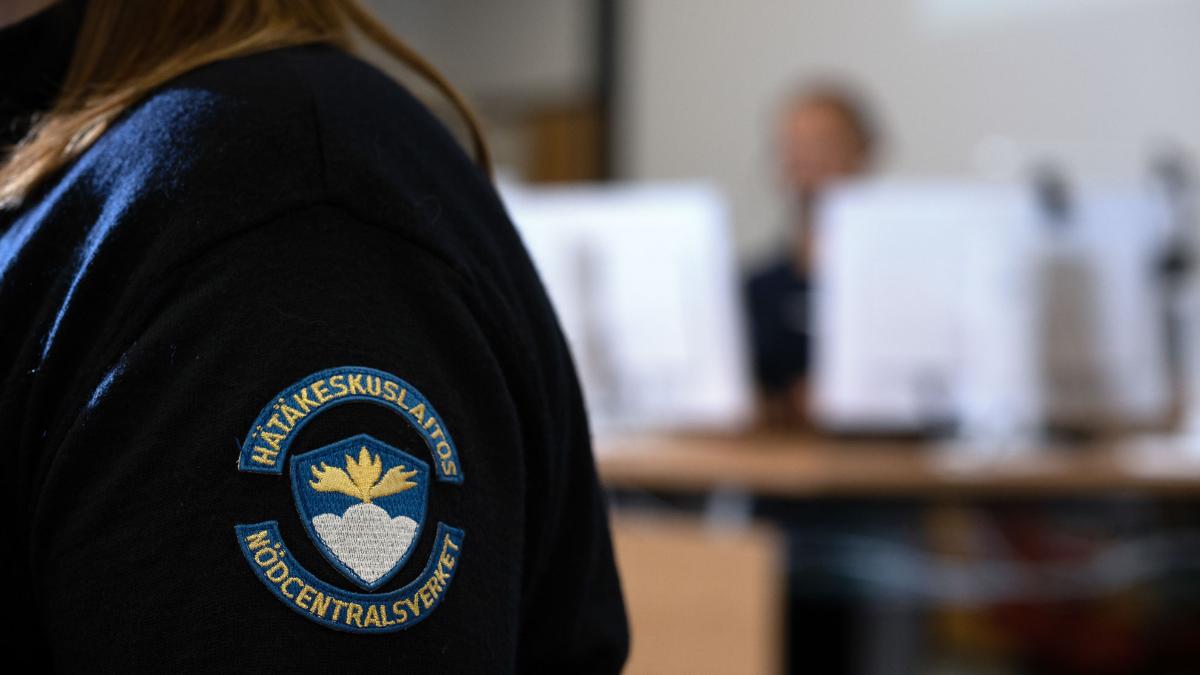It is safe to talk about self-destructiveness

Thousands of emergency calls are made to the Emergency Response Centres every year involving cases of self-harm or attempted suicide. The purpose of the Suicide Prevention Day is to inform people that help is available and that it's safe to talk about suicide.
On 10 September 2024, it is Suicide Prevention Day again. The aim of the day is to increase awareness of suicide and self-destructiveness and to reduce the stigma involved in suicide. Most importantly, the purpose is to inform people that suicides are preventable, that help is available for thoughts of self-harm, and that it is safe to talk about suicide. The Suicide Prevention Day was established in Finland in 2003.
Self-destructiveness is not a foreign topic to the ERC operators. Thousands of emergency calls are made to the Emergency Response Centres every year involving cases of self-harm or attempted suicide. The caller may be the person requiring assistance or, for example, their loved one.
“It is always the responsibility of the ERC operator to carry out a risk assessment and evaluate the current need for help on the basis of their assessment. For example, a drug overdose would be a task that is relayed to the emergency medical services, whereas the police is the responsible authority when the situation requires calling a halt to dangerous activities. Help can be delivered in many forms, but the most important thing is to know that there is always help available in an emergency,” says Tommi Hopearuoho, Development Manager at Emergency Response Centre Agency.
Emergency calls involving self-destructiveness do not always require alerting urgent assistance from the authorities. After a discussion with the ERC operator, sometimes the person in need of assistance is able to seek help on their own. If the need for assistance is more about discussion support, the person can be directed to call the Crisis Helpline maintained by Mieli ry, for example. The Crisis Helpline offers support in Finnish around the clock at 09 2525 0111. The number is also available in the 112 Suomi mobile application. The Crisis Helpline offers help in English on Fridays, 9 am - 1 pm and can be reached at 09 2525 0116.
Help is available
Studies in the ERC operator’s degree programme involve practising a wide range of cases and situations requiring interaction. Students also receive the capability to encounter customers who are facing a crisis. In their work, ERC operators get practice in dealing with many aspects of human life, and talking about self-destructiveness is not foreign to the ERC operator. If the person in need of help talks about their difficult situation and feelings of distress, the ERC operators will often ask about self-destructiveness directly. It is important that callers are honest to the ERC operators about their situation. It is also important to know that talking about self-harm does not increase the risk of suicide – on the contrary.
“It is important to seek help in a timely manner. However, in an acute emergency, you need to report the emergency and take action in accordance with the instructions of the ERC operator,” Hopearuoho sums up.
See also
Distress may turn to joy in a call involving childbirth
ERC operators provide instructions on what to do at the scene of an accident
Social emergencies require time
Demanding ERC operator work requires extra investment in wellbeing at work
Paula has been working for the Emergency Response Centre Agency for ten years: first as a communications specialist for nine years and then as a wellbeing at work specialist from the start of 2024. By looking after staff wellbeing, she feels that she is doing meaningful work and is able to indirectly contribute to the safety of Finland as a whole.
Reputation of the Emergency Response Centre Agency remains strong
According to the Reputation&Trust study, the reputation of the Emergency Response Centre Agency is ranked fourth among public administration agencies. The public felt that the Agency performed best in the responsibility and products and services dimensions.
Wellbeing is built together
Competent, committed and content staff are the Emergency Response Centre Agency's most important asset and strategic priority. The Agency’s new wellbeing at work programme places greater emphasis on developing competence in work capacity management and career management, among other things.
Distress may turn to joy in a call involving childbirth
The Emergency Response centre sends assistance to more than 2,240 assignments involving childbirth each year. For the ERC operator, the experience is unique, as the sounds of new life can be heard at the other end of the line.
ERC operators provide instructions on what to do at the scene of an accident
According to a survey by the Finnish Road Safety Council (Liikenneturva), one in four Finns do not feel that they know what to do at the scene of an accident. The instructions provided by an ERC operator can save lives in an accident situation.



